Novasia met with Seoul correspondent and producer of PressTV, Frank Smith, to discuss how media can shape nations’ political agendas. He also shares his thoughts about working for Press TV – an Iranian, English news network headquartered in Tehran- while covering nuclear issues on the Korean peninsula.
Tell us about your academic background.
I went to New Westminster Secondary School and High School, and I grew up in a small-town suburb of Vancouver. I went to Simon Fraser University, but I dropped out of Simon Fraser University several times and travelled, doing different sorts of fairly dead end jobs for more than a decade before I actually finished my first degree, which was English literature. Then after that, I came to Korea. I studied more, got a post-baccalaureate diploma at Simon Fraser, and did a Master’s degree at Korea University.
When did you get interested in journalism? Was it since childhood?
It was kind of a childhood thing. I did a little bit of journalism in high school; I wrote things for newspapers here-and-there throughout my life. After coming back to Korea, I was planning on doing a PhD around 2006.
I had already been in Korea for a few years when I left Korea to study, and then I came back and there was an advertisement for a copy editor at the Korea Herald. I applied and I got the job. I remember the first week that I worked there. It was during the Six Party Talks about North Korea’s nuclear program … A lot of the news was late-breaking and I was the new person so I was on the night shift. I was tasked with editing articles that would be on page one. I remember the managing editor and the associate editor standing behind me, looking over my work, as I was feverishly copy editing the newspaper. I was in tears, so happy to be doing that. I realized then that this is what I am going to do, probably for the rest of my life.
How did you transition from newspaper editor to producing TV news for Press TV?
The associate editor, one of the guys who was standing behind me, was recruited by Press TV to be an anchor in Teheran. They were desperate to get the global network going. He recommended that I be their correspondent in South Korea. I remember they said, “We need you to do a PTC” (Piece to Camera – presenter or a character speaks directly to the viewing audience through the camera) and did not know what it was, and I had to look it up. I did not know anything about broadcasting… So I learnt what a PTC was and I stood in front of the friend’s camcorder, said two or three sentences and mixed together an additional news package. They accepted me as a correspondent. I think mostly based on my former colleague’s recommendation.
Then I had to start doing it. I agreed to do it for a ridiculously low price, so I couldn’t hire a camera operator and run a proper news bureau for the amount of money I had. I recruited somebody to train me. Especially, on the video editing… The person who helped me actually edited the first news package that I made… From then on I have mostly been what is called “one man band”, where I am doing everything – I am shooting; I am editing; I am the person in front of the camera; I am doing the research; and I am writing it. It is incredibly challenging to try to compete with what you see on CNN and BBC.
As you have worked for different media outlets, did you notice differences in the way you tailor your content and what you are free to say?
Absolutely. I am not deluded into thinking that I decide what is going on the air. The range of what you can say or not say as a correspondent, whether it is PressTV or CNN, is controlled by people seven levels above you. There are executive producers, senior producers, news chiefs, and above them the president of the news organization.
There is a range of what you can say, but it is within a range. When you go outside of that range, somebody above you with a red pen is going to cross that out… People of a particular perspective have been chosen to fill these roles. If you look at Fox News and PressTV, they chose correspondents with a particular political perspective… Journalists learn what is within that range and what it outside of that range. The responsibility to navigate a non-biased perspective of events is left to the news consumer, who should look at more than one media to get the closest version of the truth.
In the past, I have heard some of your stories about covering joint military exercises between the US and South Korea. Could you elaborate on this topic, which is particularly in focus these days?
It is getting tough now because the public relations person at the ministry of National Defense knows my phone number and knows who I am. I do not think that South Korea’s Ministry of National Defense really wants me covering this issue as aggressively as I would like. So I do not know if I’ll get a call back or whether my registration for events will “mysteriously” get lost.
Going to these joint exercises is quite interesting. I have been to a few of them; they are often a media affair. One that I went to and I did a report on had one of the largest bombing ranges in the world. It had seating for a thousand people, and there was a thousand people watching all this.
They did it over two days. On one of the days, the South Korean President, at that time it was Park Geun-hye, came. On another day they had other dignitaries. They made the media wait until they broadcasted it – the two days coverage therefore went on a single day. Usually, a press embargo is levied for a certain particular reason – protect someone’s identity or to protect information that needs to be released at the same time for either security or market reasons – not to assist the government’s public relations, as was the case here.
I look at the military drills as a media exercise. I do not feel that it effectively helps two militaries coordinate how they are going to behave in wartime. They can do that without calling up Reuters and Bloomberg and getting this entire media to come out and shoot video of everything.
Would you say that military joint exercises are a means of communication?
Absolutely. Especially when they do get the media. They do a lot of other things on other days, but why do they need to announce that to the public? That aspect of it is a type of political communication that takes place, and the media is being used to do that. There is symbiotic relationship between the media and the military industrial complex. They reinforce each other. This whole hype on the Korean Peninsula is getting clicks for everybody. When you look at CNN, North Korea has been a very popular news item over the last six to eight months.
We have been talking about bias and news media coverage, censorship, and control of editors. Do you notice any particular bias or different perspectives in media covering current North Korean issues?
Sure. For example, I will say things like “the American militarization of East Asia,” which is not a phrase that you are going to hear on CNN or BBC; no Western network would ever use that phrase.
When we look at what is happening with US arms in the region – bigger and more powerful weapons are being brought to the region. American military bases in South Korea are being built up into the larger superbases… This is more oriented towards projecting American power in the region and containing China. That thread of analysis is suppressed in Western media.
It is really ironic to have North Korea being portrayed as a country that is fermenting an arms race when it has one-thousands of the military budget and military might of the United States.
In Arirang’s “Foreign Correspondents” program on September 12, 2017, you said that Seoul and Washington are walking different paths but trying to present the situation differently to the media. How can one know whether their policies are actually different from their public statements?
I think that you need to look at the other information that comes out. For example, just this week you had the phone call that took place between Donald Trump and Moon Jae-in, and they agreed to coordinate on sanctions. And yet the Moon administration approved 8 million dollars of humanitarian aid to North Korea… This was opposed both by Abe and Trump. Looking at that bit of information you can understand that there is a difference in policy between the US, South Korea and Japan.
At the same time, because of how things have unfolded, it appears to be that the Moon Jae-in administration has defiantly moved closer to American policy in embracing sanctions and embracing more pressure on North Korea.
Looking at public opinion in South Korea, a couple of things need to be noted. If you look at THAAD, a year five out of ten South Koreans approved THAAD, now it is eight out of ten. Now, six out of ten approve nuclear weapons for South Korea, either American nuclear weapons or South Korean’s own nuclear weapons. There is a change taking place in the South Korean populous’ perspective… The vast majority of politicians are populist, so Moon Jae-in is going to go with what people think and adjust his policy according to popular opinion. He appears to be doing it. What I would prefer to see is his administration explaining to the Korean public why it should follow a more independent path. One of the things that he has said is that he will not accept American strategic nuclear weapons in South Korea or develop a South Korean nuclear deterrent.
For our readers, who are interested in current events, do you have any advice for consuming news and maybe some suggestions about your favorite news and analytic sources?
I am guilty of not following this advice, and that advice would be seek out different sources, seek out sources you disagree with, seek out the more radical – and then when you read the news, read between the lines. I use a lot of very conventional news organizations as sources to provide me with information. What I do is, I take that information and the perspective that the news organization has and I turn it on its head. I try to look at it from the opposite perspective. I would advise people to do that with whatever news that they are reading, to look at it critically and try to get outside of one’s own comfort zone.

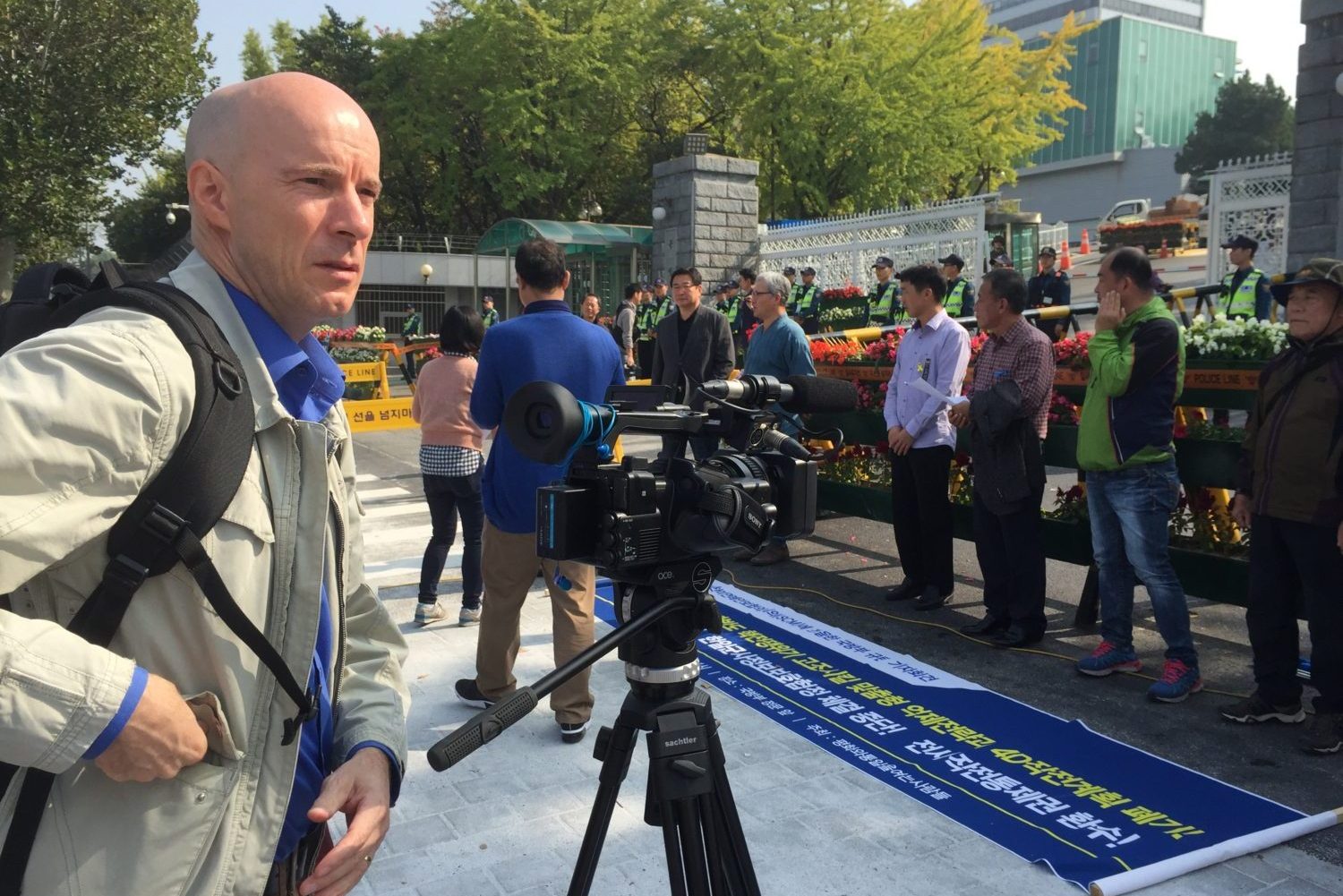
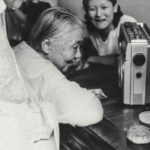
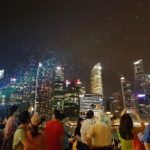
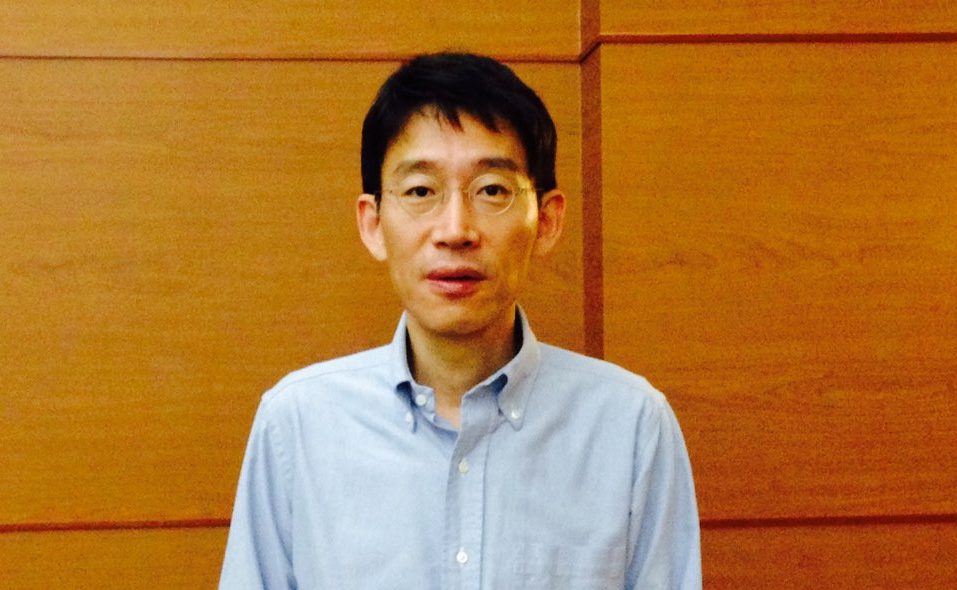
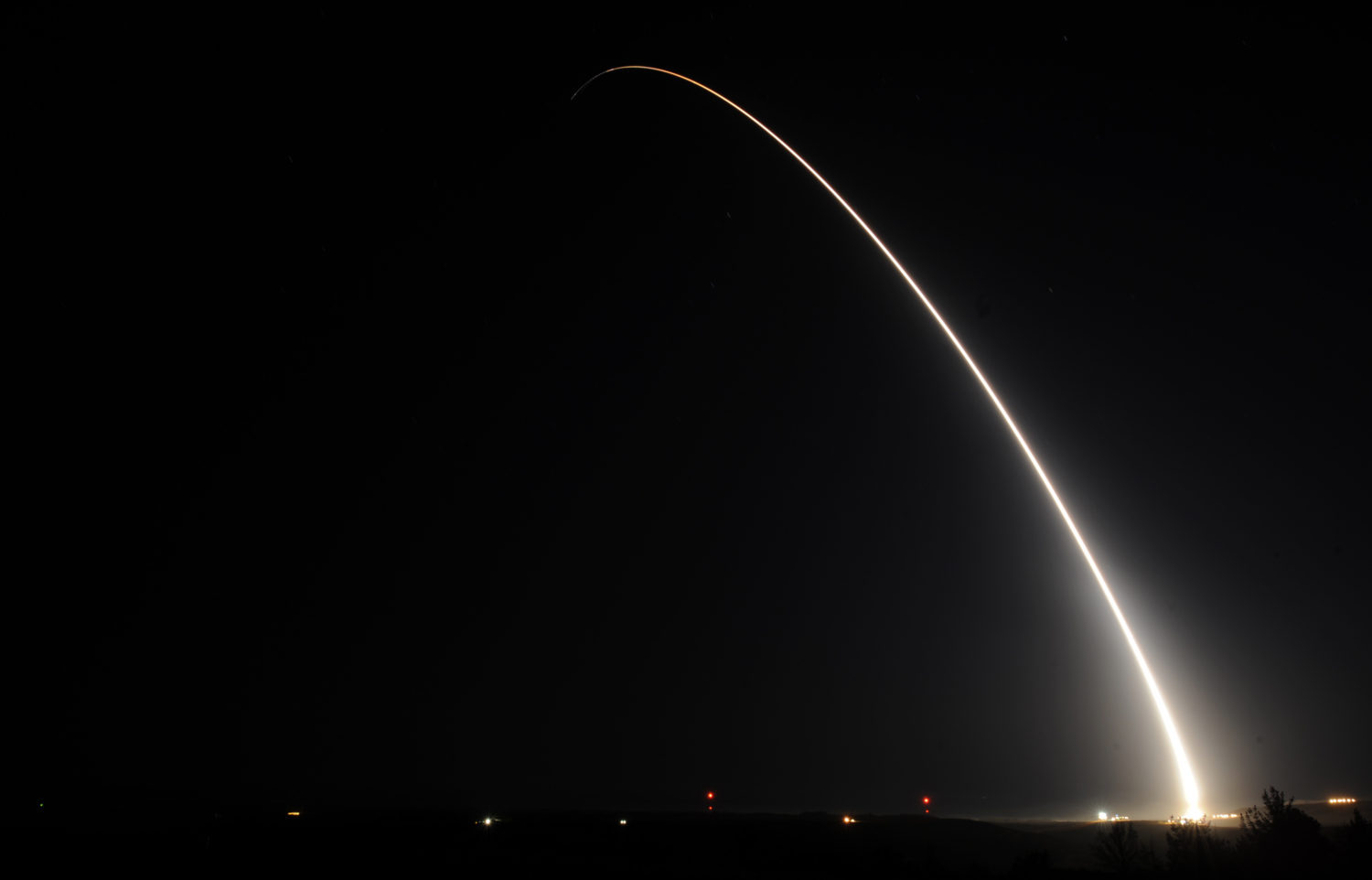
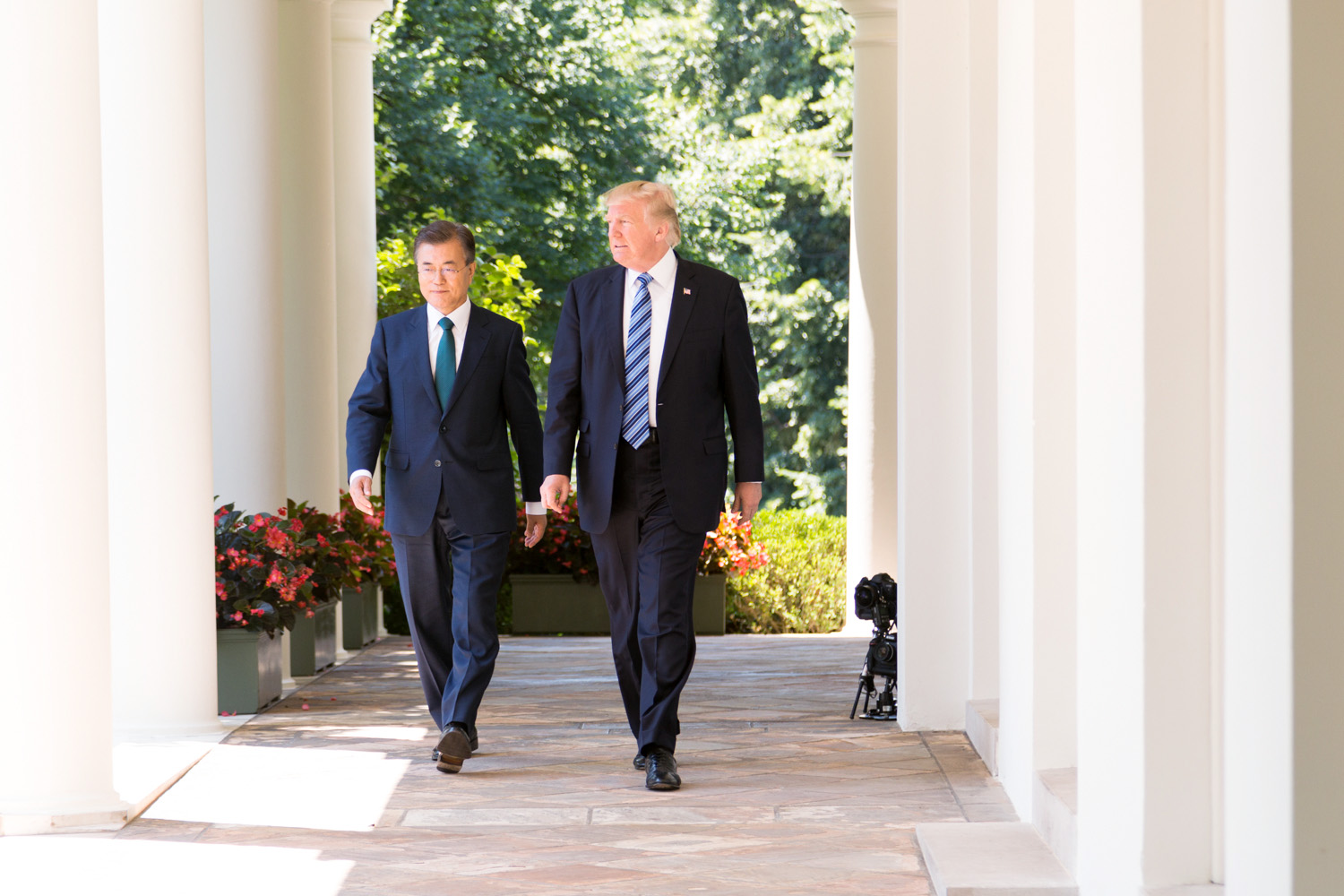
1 Comment
Mathiias
8 years agoA great ARTIClE. Want more.
Comments are closed.